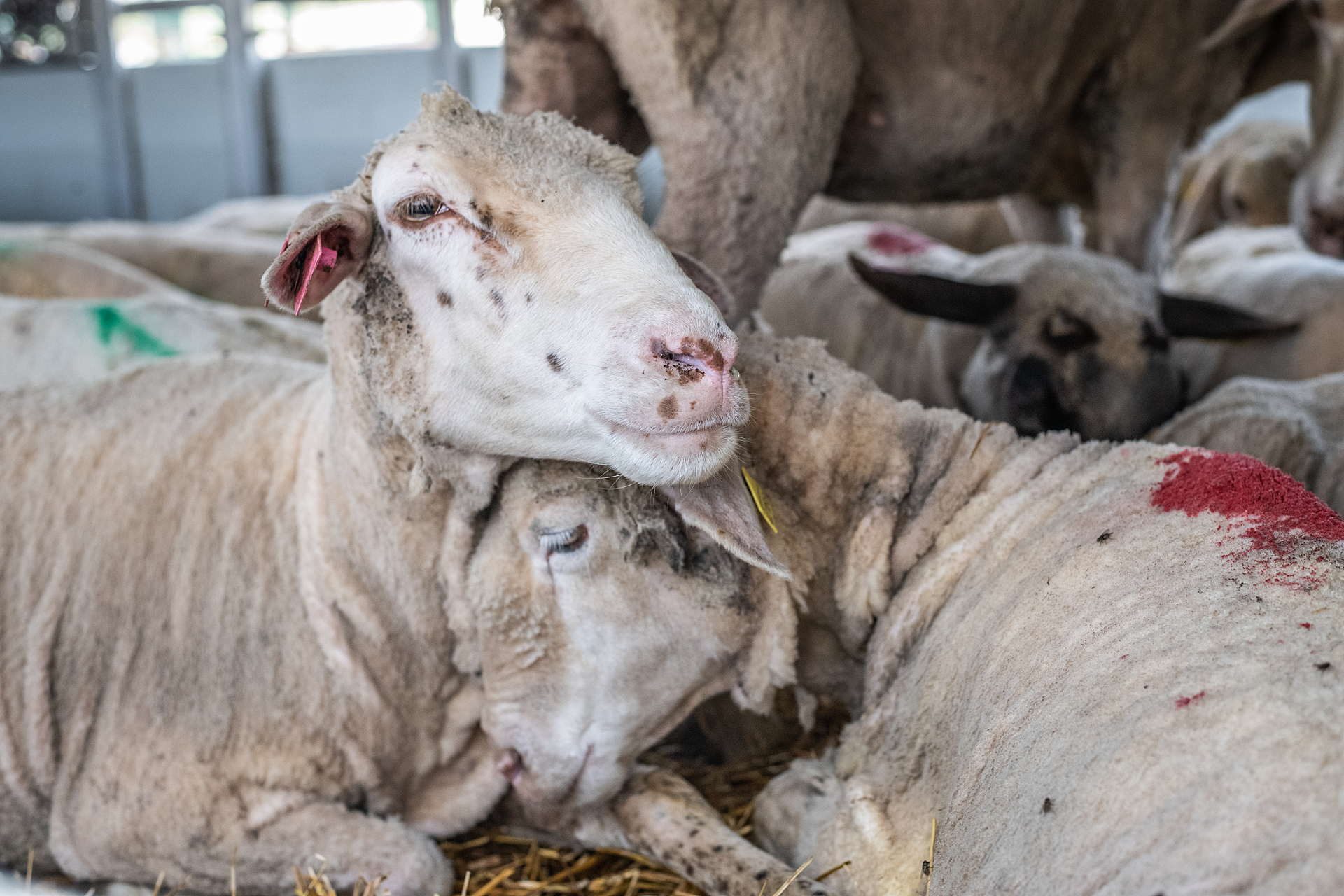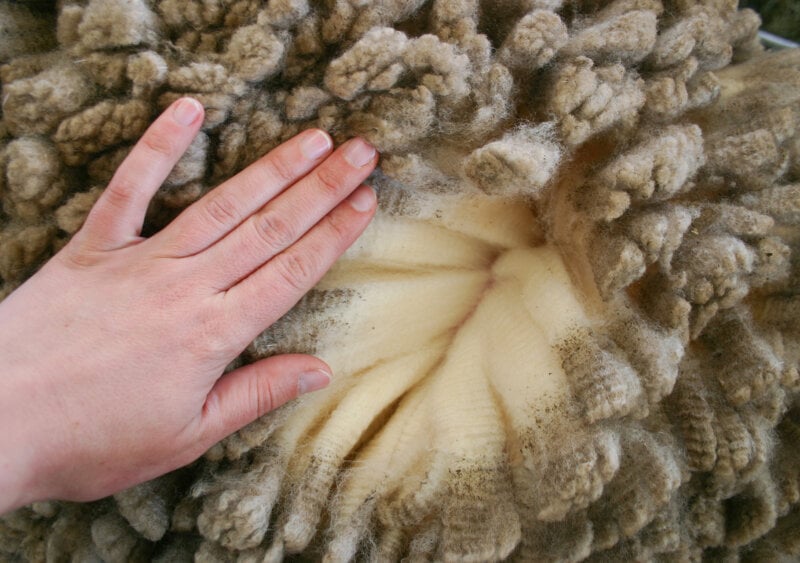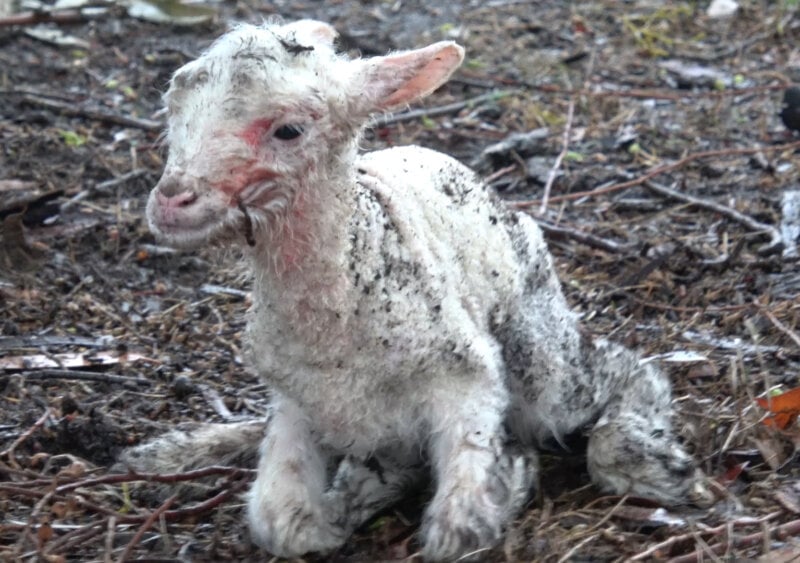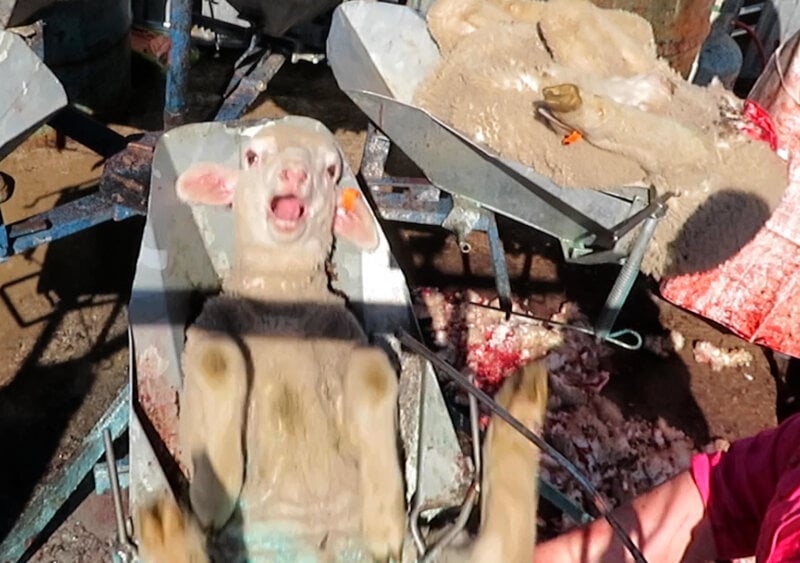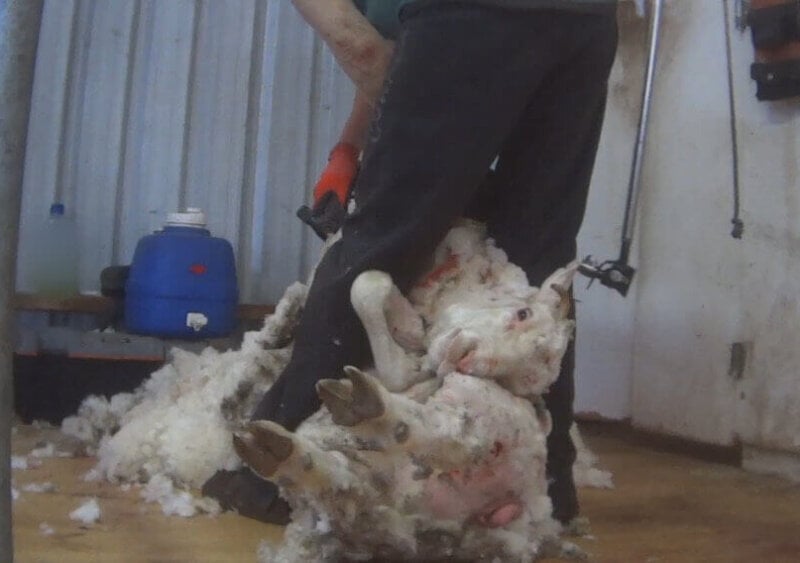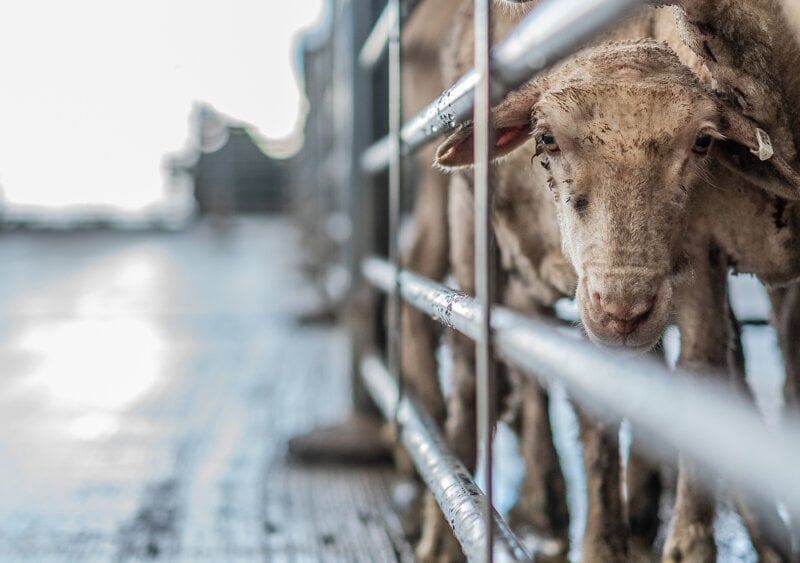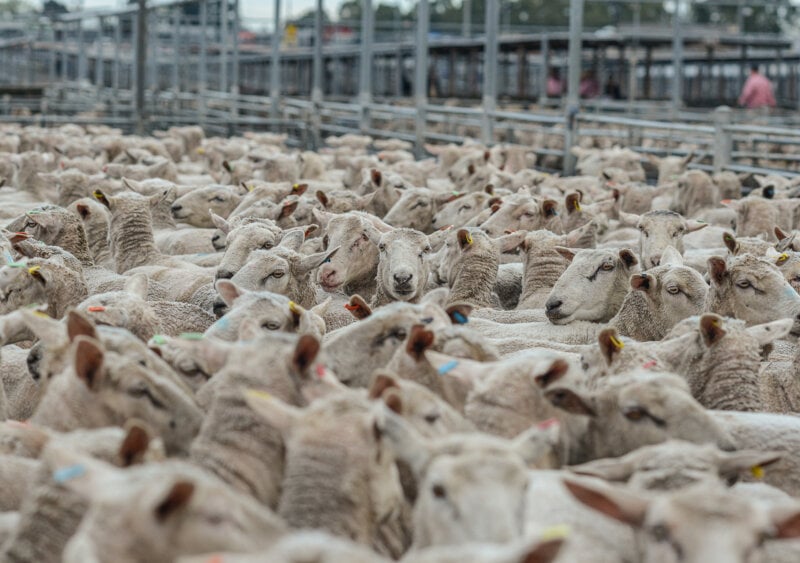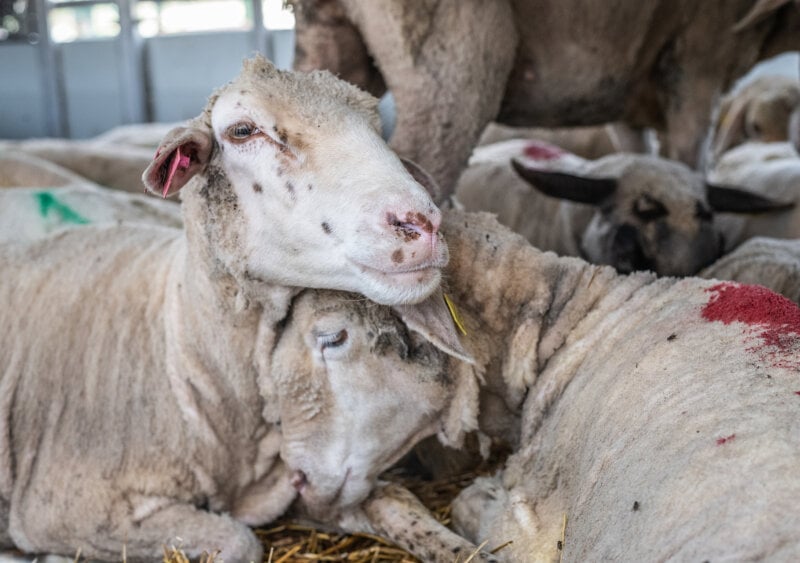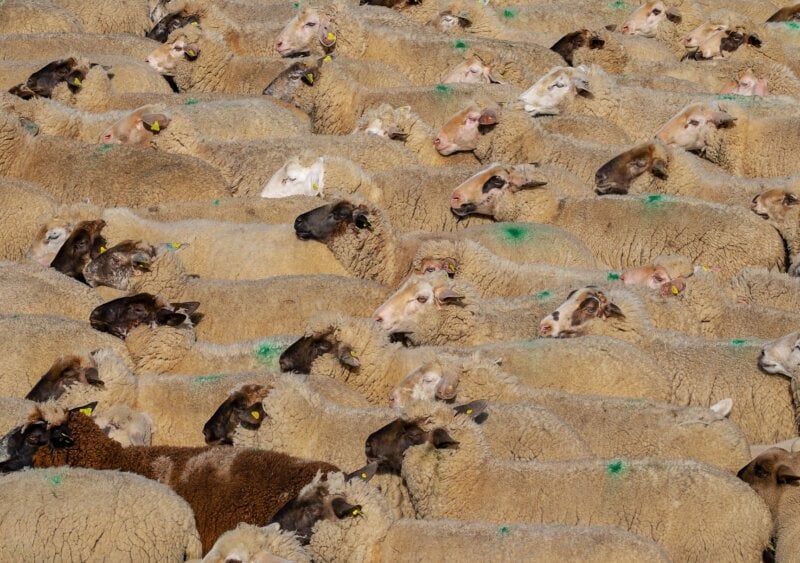Live Export
Every year, millions of sheep – including some used for their fleece whose wool production has decreased – are loaded onto severely crowded multi-level cargo ships and endure live export to the Middle East or North Africa. The voyage can last weeks, during which animals may be exposed to various weather extremes.
Many sheep fall ill or starve to death because they aren’t accustomed to the pellet food provided onboard. Lame animals are trampled when they fall down and are unable to get back up from the faeces-laden floor. The severely crowded environment and heat stress contribute to outbreaks of conditions such as conjunctivitis (aka “pink eye”) and diseases like salmonellosis.
Australia has now passed legislation that will end the live export of sheep by May 2028. This hard-fought victory comes after decades of work from intrepid investigators and dedicated campaigners. In 2006, PETA US teamed up with Animals Australia to investigate the live-export industry. Since then, numerous exposés have revealed to the public how truly reprehensible this trade is, culminating in the release of video footage in 2018 on the news programme 60 Minutes that showed sheep, panting and heat-stricken, lying in piles of melting faeces amid the decaying bodies of their flockmates during live export.
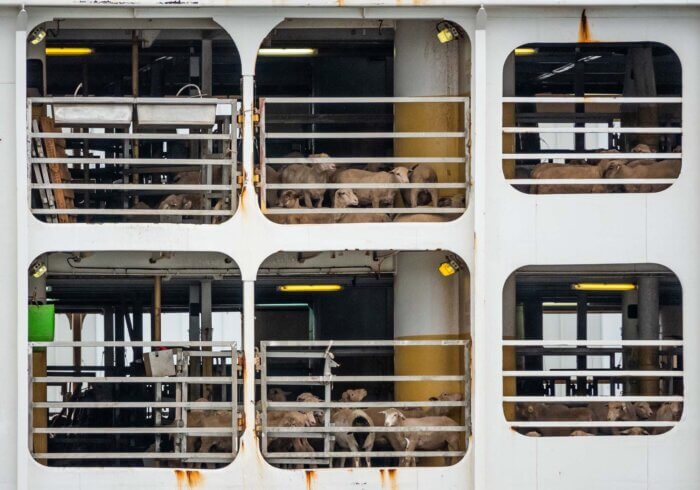 We Animals Media
We Animals MediaThe meat, wool, and live-export trades are all intertwined.
2,400 sheep died from heat stress on just one ship travelling from Fremantle to the Middle East.
To give just one example of the horrors of live export, 2,400 sheep died from heat stress on just one ship travelling from Fremantle to the Middle East in 2017.
The suffering doesn’t end for those who survive the journey. There are virtually no laws to protect animals in the countries they’re sold to, and there, they’re often subjected to abuse and methods of slaughter that are illegal in Australia. Investigators have witnessed animals being roughly dragged from ships, sometimes by the legs. Many are thrown onto trucks or cars, and workers often cut the animals’ throats with blunt or otherwise unsuitable knives – while they’re still conscious – a terrifying and agonising way to die.
The end of the live export of sheep by sea in 2028 is better late than never, although millions of sentient beings will suffer atrociously and die miserably in the interim period. The decision reflects the will of the public: in 2018, RSPCA Australia commissioned a survey which found that 75% of Australians want to see live export banned.
It’s no coincidence that Australia is the world’s largest exporter of both wool and live sheep: the meat, wool, and live-export trades are intertwined.
